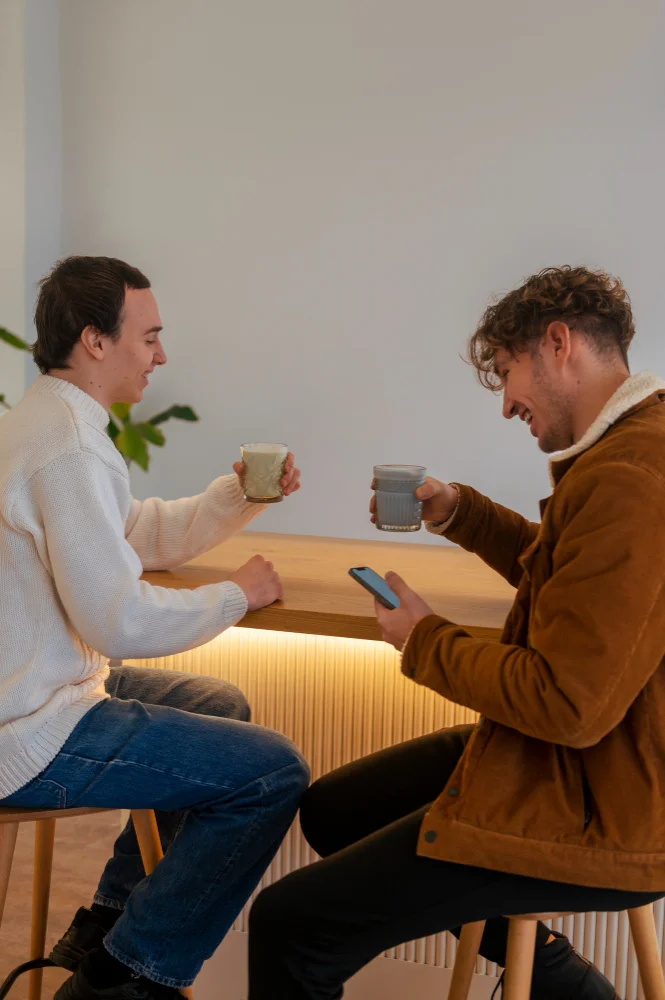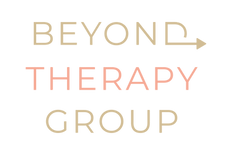DIG DEEPER
Relational therapy is more than just resolving arguments or enhancing communication. It's about making sense of why certain situations trigger strong emotions and learning how to respond, not react. We look at attachment, emotional responses, boundaries, and communication habits to help you understand how you connect with others. Some therapists may incorporate relational psychoanalysis to explore unconscious processes and early relationships, deepening the therapeutic work.
Relational therapy work often goes back to early experiences. It involves looking at past relationship patterns, attachment styles, and emotional experiences to grow. Childhood, development, and past relationships all play a role in how you learned to love, trust, and protect yourself. When you understand where your patterns came from, you can shift them and gain a better understanding of yourself and your relationships.
LEARN SKILLS TO CONNECT
You will not only gain insight into your patterns but also develop practical relational skills to connect healthily. Therapy may focus on:
- Setting and maintaining boundaries
- Advocating for your needs without guilt
- Developing emotional awareness
- Building intimacy and trust
- Navigating vulnerability and shame
- Improving conflict resolution and communication
- Practicing and improving specific interactions in relationships, such as through role-play or targeted exercises
Whether you are coming as an individual or as a couple, relational therapy helps you show up more fully in relationships with courage and clarity.


THE RELATIONAL THERAPIST
A relational therapist helps you get healthier, more fulfilling relationships. At the heart of their work is the therapeutic relationship, which is a safe and supportive model for building trust, communication, and emotional connection. Relational therapists draw on approaches such as relational psychotherapy and relational cultural theory to help you gain insight into your relational patterns - both in current relationships and those shaped by past experiences. By focusing on the unique dynamics that arise in therapy, relational therapists help you identify and address relational difficulties that may be causing emotional distress or impacting your ability to maintain healthy relationships. Through this collaborative process, you will develop the skills and self-awareness to create and sustain meaningful, satisfying relationships in all areas of your life.
BENEFITS OF TALK THERAPY
Talk therapy, especially relational therapy, is a powerful way to improve mental health and more meaningful relationships. In a safe therapeutic environment, you will be encouraged to explore your thoughts, feelings, and behaviors, leading to greater self-awareness and a deeper understanding of how you relate to others. Relational therapy focuses on the therapeutic relationship as the foundation for change, helping you develop healthier patterns of communication, conflict resolution, and emotional regulation. As you gain insight into your relational dynamics, you will build the confidence and skills to maintain healthy relationships and overall well-being. The benefits of talk therapy extend beyond the therapy room and help you create more satisfying and connected relationships in everyday life.


WHO WE WORK WITH
We work with individuals and couples who are experiencing:
- Repeating relationship patterns that are hard to break
- Difficulties with trust, emotional intimacy, or communication
- Conflict that leaves one or both people feeling unseen or shut down
- Shame or fear that keeps vulnerability at a distance
- A desire to understand and change how they show up with others
- Emotional challenges such as trauma, trust issues, or emotional difficulties
Relational therapy also helps you understand and improve your relationships with others outside of therapy, strengthening your relationships and overall emotional well-being.
No matter where you are in your journey, relational therapy is a place to slow down and explore how your relational story has shaped you - and how it can change. Relational therapy can also be beneficial for individuals experiencing relationship difficulties related to personality disorders.
COMMON CHALLENGES IN THERAPY
Relational therapy can bring up many challenges, many of which are a natural part of the healing process. One common hurdle is building a strong therapeutic relationship with the therapist, especially for those who have experienced trust issues or emotional pain in past relationships. Talking about sensitive information or revisiting difficult past experiences can feel uncomfortable or even overwhelming at times. Relational therapists are trained to recognize these challenges and create a safe, nonjudgmental space where clients feel understood and supported. By working through these obstacles together, clients can gain a greater understanding of themselves and their relationships and ultimately growth, resilience, and overall well-being.

FREQUENTLY ASKED QUESTIONS
Relationship and relational therapy is a specialized form of counseling that focuses on how individuals relate to others, especially in intimate, familial, or interpersonal relationships. As a relational approach, relational therapy centers on the dynamics of human relationships and aims to improve human relationships for greater emotional well-being. At Beyond Therapy Group in Redondo Beach, we use an attachment-based approach to help clients gain insight into their emotional responses, communication styles, and relational patterns. This type of therapy explores how past experiences, including childhood and developmental stages, shape current relationship dynamics. Compared to other therapies and other forms of talk therapy, such as CBT or psychodynamic therapy, relational therapy uniquely emphasizes the therapeutic relationship and relational patterns as central to healing. Whether you are working through conflict with a partner, struggling with trust, or feeling disconnected from others, relational therapy provides a structured space to understand and shift the underlying patterns that influence how you connect.
Get started
Relational therapy starts with a conversation. We take time to understand your unique history and needs so we can match you with the right therapist and a therapeutic approach that suits you. You are not broken. You are responding to what you have lived through. At Beyond Therapy Group, our therapeutic approach is centered on building relationships that feel safe, connected, and grounded in who you really are.

